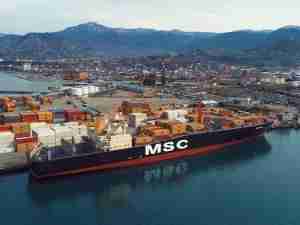Much attention has been paid to the fact that the bill proposes elimination of the limited antitrust immunity currently available for rate discussion agreements filed with the Federal Maritime Commission (FMC). It is the ocean carriers' expectation that the repeal of rate discussion authority would lead to greater rate volatility and less predictable and less stable markets, which would not be beneficial to U.S. commerce. The carriers do not recommend this course of action. If the U.S. Congress were to consider this change in the law, the group states that the U.S. Congress should carefully consider and be comfortable with the market effects that would result.
H.R. 6167's proposed changes are not limited to rate discussion agreements, however, and it contains many other provisions that would be detrimental to commerce. Proponents of the bill have suggested that it would not significantly affect carriers' operating agreements and would allow those agreements to remain in place. The WSC analysis concludes that it is simply incorrect to state that the bill would continue to allow these agreements to operate as they do today under the Shipping Act, or that the bill's proposed changes resemble the approach taken by the European Union towards such agreements. H.R. 6167 would effectively destroy the current system of operating agreements serving America's maritime foreign commerce. It would be both procedurally and substantively restrictive, and it would be wholly out alignment with every other nation's treatment of such agreements. If enacted, the bill would create an ocean transportation system that would make U.S. trades less efficient and more costly for carriers, resulting in less choice, less capacity, lower service quality, and higher costs for U.S. exporters and importers.
The bill would also interject the Federal Maritime Commission (FMC) into a far more intrusive regulatory role with respect to what are today market-based business-to-business relationships between shippers and carriers. H.R. 6167 does this in a number of ways. For example, it proposes to interject the FMC into commercial negotiations about space availability; it would introduce new requirements with respect to equipment; and, it would establish the FMC as the economic regulator of many aspects of the shipper/carrier relationship. It also would establish new reporting requirements that would be burdensome and costly, and that in the end would be meaningless to shippers and carriers. The World Shipping Council concludes that H.R. 6167 is not a sound proposal for the redesign of America's international maritime commerce regulatory system.
The WSC does not expect this Congress to enact H.R. 6167 during its remaining days of session, but determined that the serious adverse consequences of the proposal warranted a statement and analysis.









